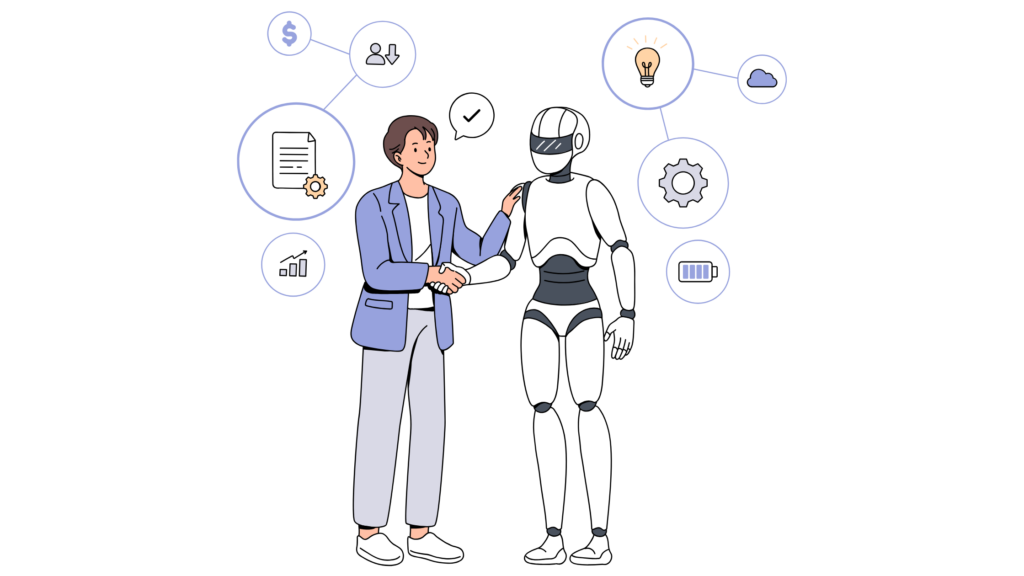Can AI Replace Human Relationships?

AI tools like ChatGPT and Gemini are no longer just for homework help or coding. More and more people are using AI tools to fill emotional voids, sparking conversations about whether AI can replace human relationships.
What can AI actually do?
Are your online chats starting to feel more real than your real life relationships? AI systems are constantly learning from humans using the software, so they’re becoming more powerful and complex. What started out as quite basic ways of interacting with AI, like asking it questions about a topic in your homework or getting suggestions on where to eat locally has turned into much more.
It’s quite common for people to have used AI for advice once or twice, but now there’s a lot of talk in the news and on social media about people using AI to replace their real, human relationships.
Why are people replacing humans with AI?
If you’re struggling with social anxiety or loneliness, AI can offer a sense of companionship. You can confide in your AI friends, share your thoughts and feelings, and receive instant responses. This can be particularly appealing if you find face-to-face interactions challenging.
You might be tempted to turn to AI to explore romantically. You might find comfort in how AI is non-judgemental and always available. AI tools can create detailed, personalised characters, engage in flirty banter, and be emotionally intimate. You can ask it to tell you a joke, or to give you a compliment, and it will respond in a way that feels very personal.
The accessibility and anonymity of AI chatbots are making them a popular tool for mental health support. You might be using them to help process your emotions, seek advice, and even manage anxiety. While AI can offer a listening ear and signpost to helpful resources, it’s important to remember that it cannot replace professional therapy.
What do people like about AI relationships?
AI is available 24/7, meaning that it can provide instant support and interaction.
Because the AI only knows what you tell it, you might feel a sense of freedom, as if you’re not carrying the baggage of past experiences.
You may feel more comfortable sharing your feelings with an AI than with a human because of its anonymity.
AI can also adapt to your individual needs and preferences, creating a tailored and personalised experience. You can create a simulation of your digital, ‘perfect’ person quickly and cheaply.
Is it too good to be true?
Over-using AI could have a negative impact on your real life social skills and emotional resilience. After all, not everyone in real life is going to act like your ‘perfectly’ curated AI. You might end up being even more disappointed by relationships in real life and struggle to cope with social situations if you become too dependent on using it. If you’re used to an AI that always agrees with you, how will you handle disagreements with your boss, or your friends? Real people are unpredictable, flawed, and sometimes frustrating, but they also offer genuine connection and growth that AI cannot replicate.
While AI can simulate empathy, it cannot truly understand or feel human emotions. It’s just repeating what it thinks you want to hear based on patterns. This also increases the risk of AI to giving you incorrect information, especially regarding mental health and physical health.
There are risks associated with sharing too much with AI, like the potential for exploitation, manipulation and scams. For example, AI could be used to create convincing fake profiles or to generate personalised phishing emails that take advantage of the things it knows about you.
The importance of balance
It’s important to recognise that AI can be a valuable tool, but it should not replace genuine human connection. Take a moment to think about how much time you spend interacting with AI. Are you neglecting real world relationships? If so, consider taking steps to reconnect with the people in your life.
If you want to start by getting anonymous advice from a trusted, free service with real people, then talk to Meic. Meic can offer free information, advice, and advocacy from 8 am to midnight every day. The service is for young people aged 25 and under in Wales. You can call, WhatsApp message, text, or use online chat.
























